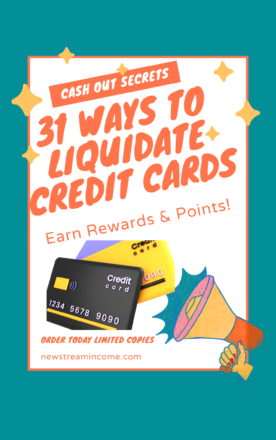Ready to dive into some side hustle statistics?
Side hustles are more popular than ever, and I believe there are two driving factors behind the trend:
Proactive desire and unprecedented ability to make extra money — fueled by technology and social media
Economic necessity
In this post, I’ll dive into the latest side hustle statistics and share insights from the latest Side Hustle Nation member survey.
1. How Many People Have a Side Hustle?
39% of working Americans report having a side hustle1. That amounts to as many as 80 million people.
Among millennials, that statistic rises to 50%2.
Overall Population
Baby Boomers
Gen X
Millennials
Gen Z
United States
39%
24%
40%
50%
46%
United Kingdom
19%
42%
39%
Canada
28%13
35%
And the trend continues to grow:
An additional 35 million (roughly 17% of the working-age population) plan to start to a business14.
70% of Gen Z reported looking for a side hustle10.
64% of Gen Z plans to “monetize a project on social media” in the next year12.
40% started in the last year15.
It’s not just a millennial thing either; 24% of baby boomers (age 59-77) indicated they have a side hustle1.
In the UK, 42% of Gen Z and 39% of millennials report having a side hustle9.
And when the definition of a side hustle is expanded to include answering surveys and selling items on sites like eBay, the numbers are even wilder. With those guidelines, as many as 93% of us have an extra income stream11.
Even celebrities are getting in on the action, recognizing the value in diversifying income streams.
2. Why Are So Many People Side Hustling?
Making extra money is the most commonly-cited goal for starting a side hustle.
According to a 2023 Pinger survey14, 80% of side hustle business owners did it to increase their income. But “increasing income” is just a surface-level goal.
Why people want the extra income is more surprising. The same survey found that 40% wanted to learn a new skill, and 30% wanted to eventually be their own boss.
According to Bankrate, 41% of side hustlers need the extra money to make ends meet. Another 43% plan to use the money primarily for savings or additional disposable income1.
(Source)
In 2022, 29% said inflation was a factor in starting their side hustle11.
When I asked Side Hustle Nation what their primary motivation was for starting a side hustle, I found personal freedom at the top of the list:
Why side hustle? Here’s what people are hoping to achieve:
38.7% – More personal freedom
27.4% – Extra income to save, spend, or invest
11.7% – Extra money to make ends meet
6.2% – Pay off debt faster
5.6% – A creative outlet
4.6% – “It felt like a calling”
3. What Do Side Hustlers Want?
I polled over 5500 Side Hustle Nation visitors and found that only 20% were looking to build a side hustle to quit their jobs.
The remaining 80% were simply looking to make extra money.
4. How Much Do People Make From Their Side Hustles?
The average side hustle brings in $1,122 a month, but the median income is much lower — just $200 a month5.
That means that many side hustlers are at the lower end of that earning spectrum, and the data from Side Hustle Nation subscribers seems to support that as well.
In our recent survey, half of all respondents reported making less than $100 per month:
Still, you gotta start somewhere!
Once your side hustle or business has a little more traction, the numbers are more encouraging. Of the respondents making over $100 a month:
36.7% make $101-$500 per month
19.8% make $501-1000 per month
31.2% make $1001-5000 per month
7.5% make $5-10k per month
and 4.7% reported earning over $10k a month from their business
If we combine some of these income brackets, you can say that after someone’s side hustle gets over the initial startup phase, 43.4% of side hustlers earn $1,000 or more per month.
5. How Much Time Do Side Hustles Take?
The average side hustler spends 11-16 hours a week on their business6.
Combined with the average earnings, that works out to an average of $16-23 an hour.
38.3% of Side Hustle Nation subscribers reported working 5-20 hours a week on their business, which I’d put squarely in the “part-time” category.
Even if the long-term goal is to build a time-leveraged business, there’s an element of needing to put in the time to make it work. Of the people who reported earning less than $100 a month from their side hustle, 75% said they spent 0-5 hours a week on it.
Of the people making $500 or more every month, 85% are spending at least 5 hours a week to earn it.
And for established businesses, the effective hourly rates can become quite lucrative. In the $5000+ income category, 40% of people reported spending 20 hours a week or less. That works out to around $60-500 an hour.
6. What Are the Most Popular Side Hustles?
Based on over 1,700 survey responses from Side Hustle Nation, the most popular side hustles are:
Online Business — including blogging, podcasting, online courses, and affiliate marketing.
Freelancing and Consulting
E-Commerce — including Amazon, eBay, Etsy, and your own online store.
Investing — including real estate, crypto, stocks, buying businesses, and alternatives.
Self-Publishing
Local Services — including cleaning, knife sharpening, notary services, pet waste removal, and more.
YouTube
Software and Apps
Gig Economy jobs, like Instacart or Lyft.
7. What Side Hustles are People Most Interested in Starting?
Based on Google search volume estimated by ahrefs, here are the top 25 businesses people are most interested in starting.
#
Type of Business
Approximate Monthly Searches
1
how to start an e-commerce business
24000
2
how to start a dropshipping business
20000
3
how to start a vending machine business
17000
4
how to start an affiliate marketing business
17000
5
how to start an instagram business
17000
6
how to start a blogging business
16000
7
how to start an online business
16000
8
how to start a fashion business
15000
9
how to start a uhaul business
13000
10
how to start an amazon business
13000
11
how to start a clothing business
12000
12
how to start an airbnb business
12000
13
how to start a non profit business
11000
14
how to start a cleaning business
10000
15
how to start a digital marketing business
8400
16
how to start a restaurant business
8200
17
how to start an etsy business
6900
18
how to start a trucking business
6200
19
how to start a candle business
5500
20
how to start a coffee shop business
5500
21
how to start a pressure washing business
5500
22
how to start a food truck business
5400
23
how to start a farm business
5300
24
how to start a home health business
4600
25
how to start a freelance writing business
4100
8. What Are the Highest Paying Side Hustles?
Next, I wanted to see if there were any shifts in the business models that the highest earning side hustlers were involved with. In other words, which side hustles have the best earning potential?
Among side hustlers earning over $1,000 a month, the top 3 business models are:
Online Business
Freelancing / Consulting
Investing
This was a similar distribution to the most popular side hustles data above, only with Investing replacing E-Commerce in the Top 3.
That bias toward investing is even more profound when we look at only the $10k+ per month earners. Compared to the rest of the side hustle population, the highest earners skew toward investing, Software, and interestingly, YouTube.
Perhaps not surprisingly, the $10k+ per month earners are less likely to be involved with gig economy apps, where your earning power is often capped by the hours you can dedicate to them.
9. Who is Side Hustling by Gender and Age?
Both men and women side hustle at similar rates. According to the Side Hustle Nation website analytics, roughly 45% of visitors are female, and 55% are male.
Side hustlers tend to skew younger as well, with 54% being 18-34 years old.
To itemize out the age data for side hustlers:
24% are 18-24 years old
30% are 25-34
22% are 35-44
13% are 45-54
7% are 55-64
4% are 65+
One hypothesis is that older workers are more established with their careers and families, and have less time and desire to start a side hustle.
10. When Did Side Hustles Become a Thing?
Dictionary.com says the term was first recorded in the 2000-2005 period, but according to Grammarist, the term side hustle was first used way back in 1950!
In previous generations, making money outside of your day job may have been known as “moonlighting” or simply starting a business.
11. Have We Reached “Peak” Side Hustle?
Interest in side hustle-related searches has increased dramatically since late 2015:
While the term was certainly in use prior to that, it didn’t become mainstream until then. Per Google Trends, interest in side hustles peaked in July 2022, but we’ll see if the chart continues to climb.
12. Do People Like Their Side Hustles More Than Their Jobs?
The Hustle found that while only half of respondents “loved” their primary job, 76% loved their side hustle4.
13. What Are the Biggest Challenges Facing Side Hustlers?
I asked Side Hustle Nation subscribers what their biggest struggle was, and grouped the responses into several general categories.
The “Big 3” challenges that came up the most were:
Growing their business
Dealing with limited time
Coming up with the right side hustle idea to move forward with
Mindset issues, administrative challenges, and lack of startup funds also made the list.
14. Do Side Hustles Come From Hobbies?
Vistaprint found that 27% of full-time workers have started making money from a hobby. Another 55% said they’d like to turn a hobby into a business6.
15. How Do Side Hustles Impact Full-Time Jobs?
Research from the University of Iowa found that a side hustle can actually boost performance at your full-time job7. (Despite this, some companies still have “no moonlighting” policies.)
16. Where is Side Hustling Most Common?
Inspired by this data on which metro areas have the most side hustlers, I took a look at some of the location data for Side Hustle Nation visitors.
Not surprisingly, at first glance, most visitors tend to come from the most populated areas: New York, LA, Washington, DC, Atlanta, Dallas, etc.
But when I control for population, the data tells a more interesting story. In some cities, side hustling is 2-5x more common than the national average.
Those metro areas are, in order of popularity:
Atlanta, GA
Washington, DC
Salt Lake City, UT
Orlando, FL
Miami, FL
Hartford, CT
Myrtle Beach, SC
Boston, MA
Ft. Myers, FL
St. Louis, MO
Detroit, Seattle, and Denver also sought out side hustle information at roughly double the national average.
17. What Areas Side Hustle the Least?
And where are relatively few people interested in side hustles? Per our data, a lower than average number of people visited Side Hustle Nation from:
El Paso, TX
Bakersfield, CA
Tucson, AZ
Colorado Springs, CO
Wichita, KS
Albuquerque, NM
Fresno, CA
San Antonio, TX
Louisville, KY
Jacksonville, FL
18. How Many New Side Hustles Are Started Each Year?
The exact number of new side hustles started each year is hard to pin down, since many begin as un-registered sole proprietorships.
Still, the US Census Bureau does collect data on new business registrations, which allows us to make an estimate8.
The gray segment of the chart represents businesses without immediate plans to hire employees. Those are more likely to be side hustles than the “high propensity applications” in orange, which are official incorporations or indicate plans to hire right away.
From this, we can see that in 2023 there are over 400,000 new businesses started every month. Of those, nearly 300,000 are likely to be side hustles.
Annualized, that equates to nearly 3.6 million new side hustles.
Where Do These Side Hustle Statistics Come From?
This data was compiled from the Side Hustle Nation member survey, Side Hustle Nation website analytics, and other online sources.
Among those:
Bankrate
Experian
Zapier
The Hustle
The Motley Fool
Vistaprint
University of Iowa
US Census Bureau
MSN
Microsoft
Insuranks
Instagram
Newswire
Pinger
GoBankingRates
About the Side Hustle Nation Member Survey
One of the best ways to figure out how to better serve your customers or your audience is to, well, ask them.
Every couple years, I send out a survey to Side Hustle Nation email subscribers.
My goals are to get some insights into:
where readers and listeners are at in your side hustle journey
the types of businesses you’re working on
what your biggest challenges are
I also want to find out how I can improve as a content creator to be more helpful.
I always take these responses seriously and they guide my direction in a lot of ways. In the past, the answers to these questions have led me to redesign the site, add a special VIP page, create a Facebook group, hire a podcast editing service and a podcast coach, do public side hustle coaching, get rid of my voice over guy, focus on certain side hustles more than others, and lots more.
My Survey Requirements
Here were my main requirements:
Short – I wanted to be respectful of subscribers’ time, and also knew this would improve response rate.
Mobile-friendly – Since I was only sending the survey invite via email, it had to be mobile-responsive.
Actionable – I wanted to be able to DO something with the results! Not much point in going through this exercise if it doesn’t result in any new action.
The Survey Set Up
Instead of dedicated survey software like Survey Monkey, I went with my tried-and-true Google Forms.
It’s easy to set up and edit, and all the responses get dumped into a handy spreadsheet for you.
I like it because it’s simple and you can choose between multiple choice, free-response, optional questions, and you have decision logic on pagination of where to send people based on what answer they select.
The design may not be the prettiest in the world, but it is mobile responsive.
Oh, and it’s free. 🙂
My survey this year had 5 main questions, mostly multiple-choice, split over 4 pages. I broke up the questions on different pages because I reasoned having all the questions on one page might seem intimidating and hurt the completion rate.
Plus Google Forms will show a little progress bar that “completionists” like me really want to see hit 100% once I start.
Marketing the Survey
I sent out one dedicated email asking subscribers to complete the survey, and sent a reminder a few days later
To give people an incentive to complete it, I gave away two free 30-minute consultations. Here’s the message I sent:
Hey Nick,
Got a minute?
I have a few quick questions that will help guide the direction of Side Hustle Nation.
Your responses help me better understand and serve you and the rest of this incredible “Nation,” plus you’ll have the option to be entered to win one of two free Side Hustle Strategy Sessions with yours truly, just for filling out the survey.
(Regularly not even for sale!)
Please Click Here to Complete the Survey
It should only take a couple minutes and you can even do it from your phone.
Responses are totally anonymous — unless of course you want to enter the drawing for the free Strategy Session.
Thank you so much for your input!
Hustle on,
Nick Loper
SideHustleNation.com
The survey invitation went out to more than 65,000 subscribers and in total, I gathered more than 1700 responses!
Congrats to Maria and Angel for winning the random drawing for the strategy session!
(I used this Random Number Generator from Google to pick the winners.)
If you don’t have the email list to send to, you can do one-on-one outreach, or post in relevant FB groups you’re active in.
Question 1: Your Side Hustle Earnings
Goal: Figure out where your audience is today so you can create content to best serve them.
My phrasing: “In a typical month, my side hustle or business earns:”
$0-100
$101-500
$501-1,000
$1,001-5,000
$5,001-10,000
$10,001 or more
I used this this multiple-choice question to kick off the survey because it would be very quick to answer and hopefully build momentum into the rest of the questions. This was the only question on Page 1 of the survey.
And while it’s great to see roughly a third of the audience earning $500 a month or more, it’s a little discouraging to see that half the audience hasn’t decided the best course of action yet.
Just pick something, I want to yell. It doesn’t matter!
On the positive side, the percentage of of people earning $500 a month or more is dramatically up from previous years. (It was 14% in 2019, so we’re moving in right direction!)
The challenge for me is to move people clockwise along this pie; to equip you with the idea, empower you to take action, and show you how to get results and grow your business.
Question 2: How Much Time Do You Put Toward Your Side Hustle?
I asked: “In a typical week, I spend about ______ hours on my side hustle or business.”
Half of the respondents indicated they were spending 0-5 hours a week on their side hustle. Not surprisingly, the results here were closely correlated to the income results from question 1.
Question 3: The Most Popular Side Hustles
Goal: Find out the most common or popular type(s) of businesses side hustlers are working on.
I asked: “What type of business / side hustle are you running or are you most interested in? Please check all that apply.”
Question 4: Motivation: WHY Side Hustle?
Goal: Find out what inspired people to seek out information on side hustles in the first place. With that motivation in mind, I can better speak to the big-picture goals of my audience.
My phrasing: “My PRIMARY motivation to start (or seek information about) my business or side hustle was _________________:”
Question 5: What Are You Struggling With?
Goal: Find out what side hustlers are currently struggling with.
My phrasing: “When it comes to your business or side hustle, what’s the single biggest challenge you’re facing right now? (be detailed)”
This was a free-response question, but I grouped similar responses into a few general categories.
The theory is, once you know what your audience is struggling with, you can craft content, products, or services to help them.
According to the book Ask, this is the most important question of all, and allows you to create different “buckets” of your audience. For example, based on these answers I can see buckets related to:
Finding your side hustle idea
Making the most of your limited hours
Growing your business to the next level
Question 6: Fishing for Future Content
Goal: To see what the audience would like to learn more about.
My phrasing: “One thing I wish you’d cover more thoroughly is _________.”
This question was also free-response, but there were some patterns that emerged. Among the most commonly-requested content were:
Affiliate marketing (As this has been my main source of income for over 10 years, I think I take a lot of the basics for granted. To be sure, I could do a much better job covering how it works and how to get started.)
Taxes, accounting, and legal stuff.
Outsourcing and hiring
Step-by-step guides
More guests who are earlier in their journey
The final question was the one I was most anxious about, but knew it would be important to ask.
Question 7: Critiques
Goal: Figure out what’s turning off subscribers so I can potentially stop.
My phrasing: “… and if I’m being totally honest, one specific critique I have is _________.”
I took an afternoon, swallowed my pride and dove into a pile of constructive criticism. And people didn’t hold back!
For example:
“You’re a little whorey with ads.”
“I simply don’t trust you.”
“Emails are a little clickbaity.”
Now as to be expected, there was a fair amount of conflicting critiques:
“Podcasts are a bit lengthy.”
“Shows are too short.” (More people were actually in this column, asking for more in-depth content and even more frequent episodes).
And:
“I love that there’s no fluff and hype.”
“Way too much fluff. Get to the point.”
But after sorting through hundreds of responses, a few votes started to pile up in favor of:
Following up with past guests.
Explaining acronyms or technical terms as they come up.
More coaching episodes or featuring people who aren’t “super successful” yet.
Pressing for specific details, asking people what they’d do differently, and not glossing over the negatives.
Potentially updating the cover art and branding.
While some of these answers stung a little to read, they were actually super helpful. I’ve got some concrete actions I can take to improve, and will be working on those.
I owe a big thank you to everyone who took the time to fill out the survey!
Your Turn
Think you can borrow some of my questions/formats and learn from my mistakes?
Have you run a survey to your audience recently? Did you take action based on the results?
Pin it for later:
*********
Stock photos by Black Salmon and Syda Productions via Shutterstock


















